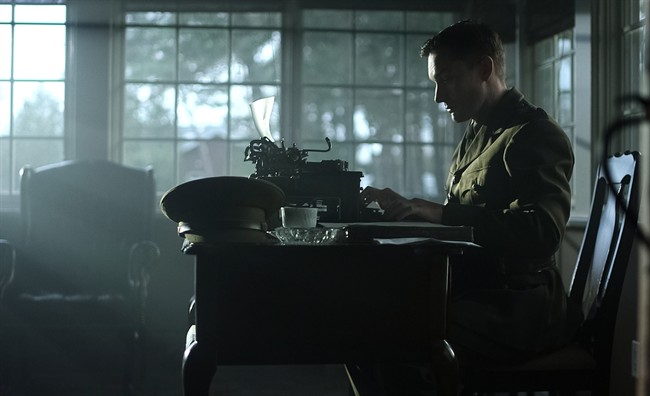‘Camp X: Secret Agent School’ traces CIA roots to Canadian spy school
Advertisement
Read this article for free:
or
Already have an account? Log in here »
To continue reading, please subscribe:
Monthly Digital Subscription
$1 per week for 24 weeks*
- Enjoy unlimited reading on winnipegfreepress.com
- Read the E-Edition, our digital replica newspaper
- Access News Break, our award-winning app
- Play interactive puzzles
*Billed as $4.00 plus GST every four weeks. After 24 weeks, price increases to the regular rate of $19.00 plus GST every four weeks. Offer available to new and qualified returning subscribers only. Cancel any time.
Monthly Digital Subscription
$4.75/week*
- Enjoy unlimited reading on winnipegfreepress.com
- Read the E-Edition, our digital replica newspaper
- Access News Break, our award-winning app
- Play interactive puzzles
*Billed as $19 plus GST every four weeks. Cancel any time.
To continue reading, please subscribe:
Add Winnipeg Free Press access to your Brandon Sun subscription for only
$1 for the first 4 weeks*
*$1 will be added to your next bill. After your 4 weeks access is complete your rate will increase by $0.00 a X percent off the regular rate.
Read unlimited articles for free today:
or
Already have an account? Log in here »
Hey there, time traveller!
This article was published 11/07/2014 (4101 days ago), so information in it may no longer be current.
TORONTO – It’s hard to imagine an empty field in Whitby, Ont., was once a “deadly school for dirty warfare.”
That description opens History Channel documentary “Camp X: Secret Agent School,” which tells the story of an unlikely training ground for Canadian, British and American Second World War spies — some of whom went on to become the founding members of the CIA.
Executive producer Elizabeth Trojian stumbled on the story while working on another project with archaeologist Ron Williamson and was shocked to learn that Camp X had been demolished in the 1970s — and that very little from the facility had been preserved.

“I couldn’t believe such an important aspect of Canadian history was buried in a park,” Trojian said in a phone interview.
Fascinated by the “dark arts of espionage,” she worked over the next year with her crew at Toronto-based Yap Films to recreate the Camp X experience through interviews with former secret agents and military experts combined with an excavation of the site by Williamson and dramatizations of key events.
The spy school was established by a covert British intelligence organization in partnership with the Canadian government. The British had a vested interest in training the Americans in intelligence gathering, but couldn’t do it on American soil since the U.S. had not yet entered the war. Camp X’s Canadian location solved this problem; it opened just a day before the U.S. was forced into the war by the bombings of Pearl Harbour in December 1941. This set up Camp X as “a place of great importance for winning the war effort,” said Trojian.
The film profiles a number of agents, including Guy d’Artois, a French-Canadian sent to France to embed with Allied forces, and Norm Delahunty, a Torontonian instrumental in intercepting and decoding German communication.
The type of recruit sought for Camp X was “a PhD who could win a bar fight,” John Singlaub — an American trained at Camp X — says in the documentary.
Blowing up bridges, intercepting communication and close combat were all part of the job description of Camp X graduates who were strategically placed in China, Panama, Greece and beyond.
Preparing for these scenarios required extreme measures. Unlike traditional military exercises, Camp X training used live ammunition and the hand-to-hand combat method taught was described by a trainee as “inherently brutal.”
Trojian said she was fascinated to discover a “how to be a secret spy” manual, one of the few items preserved from the facility, a copy of which can be found in the British National Archives in London.
It includes maxims for covert war — “attack your opponents’ weakest points” — and detailed directions for likely scenarios such as how to hide in a tree, kill someone silently or search a prisoner.
The field guide was written by notorious British double agent Kim Philby and Paul Dehn, a film critic who later went on to write spy films including “Goldfinger” and “The Spy Who Came in from the Cold.”
Dehn wasn’t the only writer to find himself in Camp X — author Roald Dahl was brought to the site to chronicle its history and it’s rumoured that James Bond author Ian Fleming received training at Camp X.
The spy school is also the subject of a CBC drama, premiering in winter 2015.
“Camp X: Secret Agent School” airs July 14 and 15 on the History Channel.

